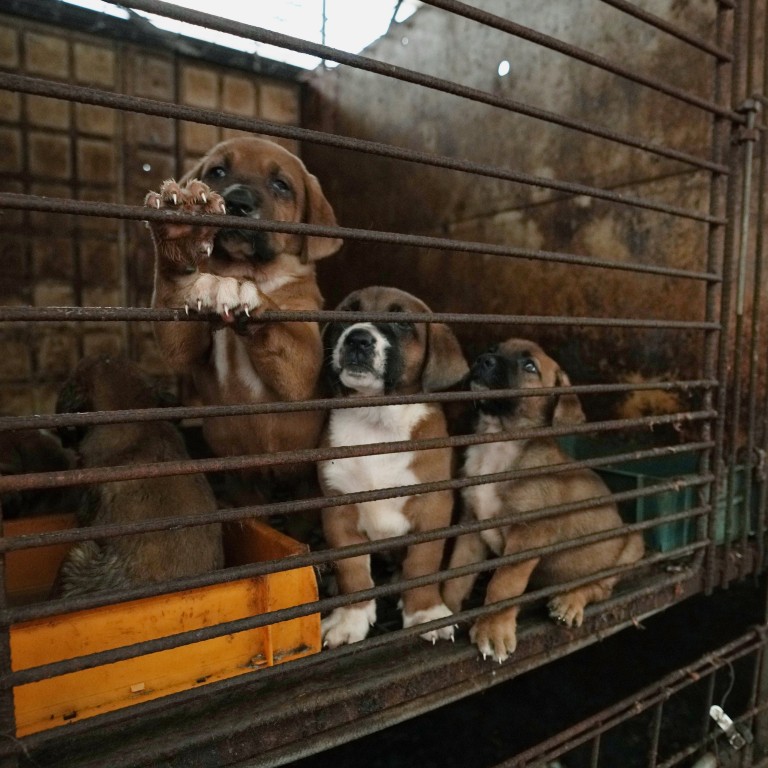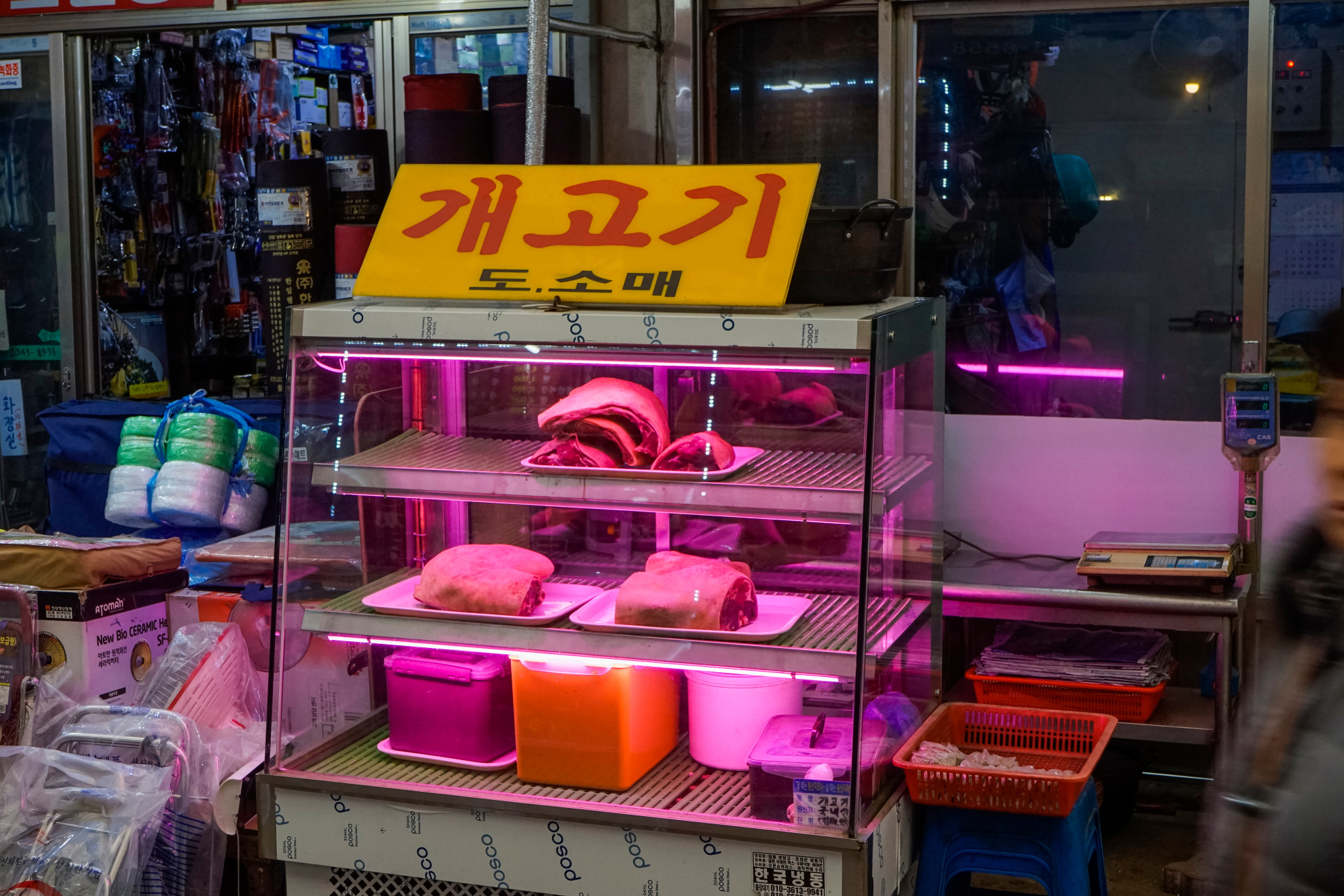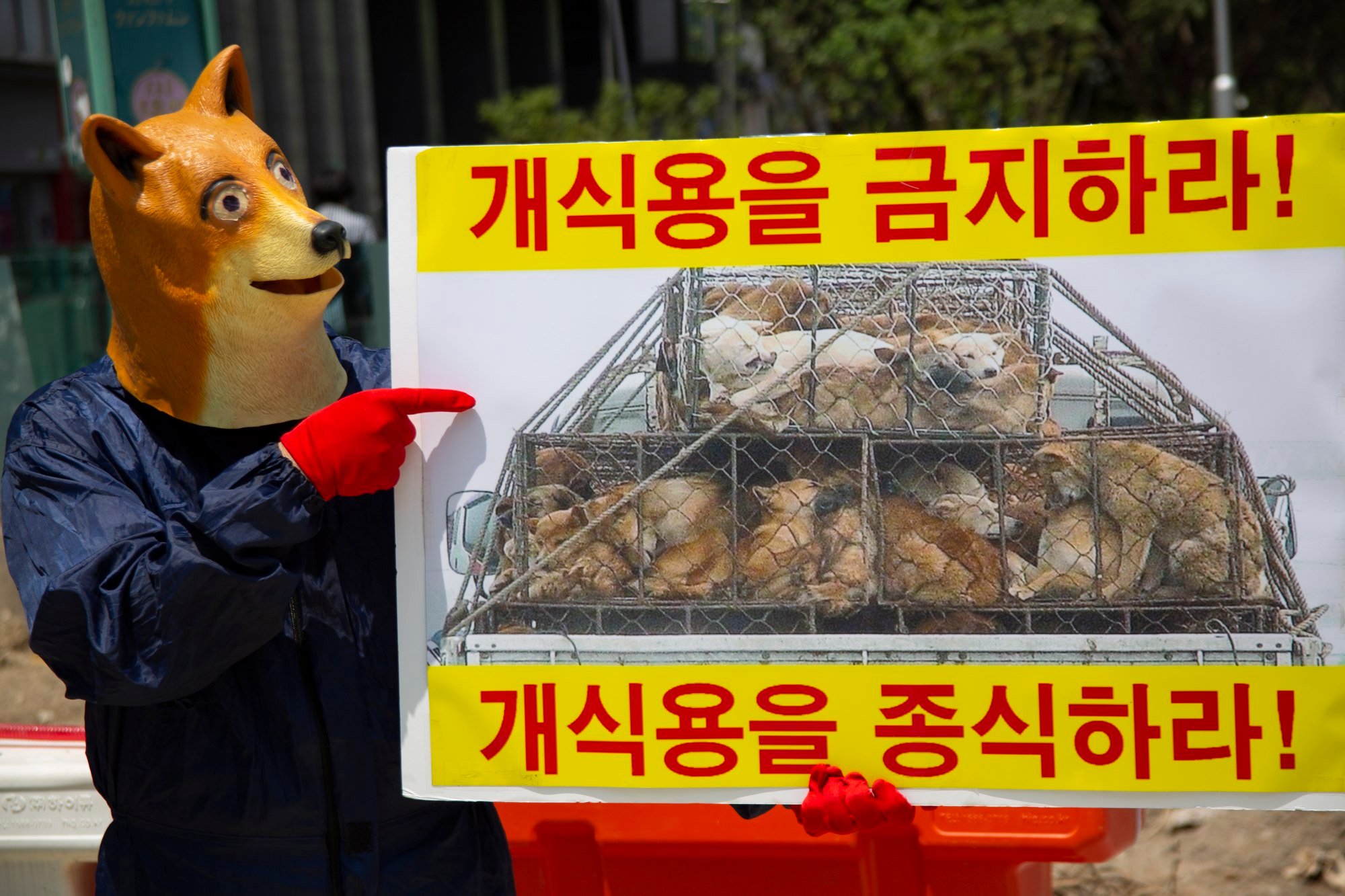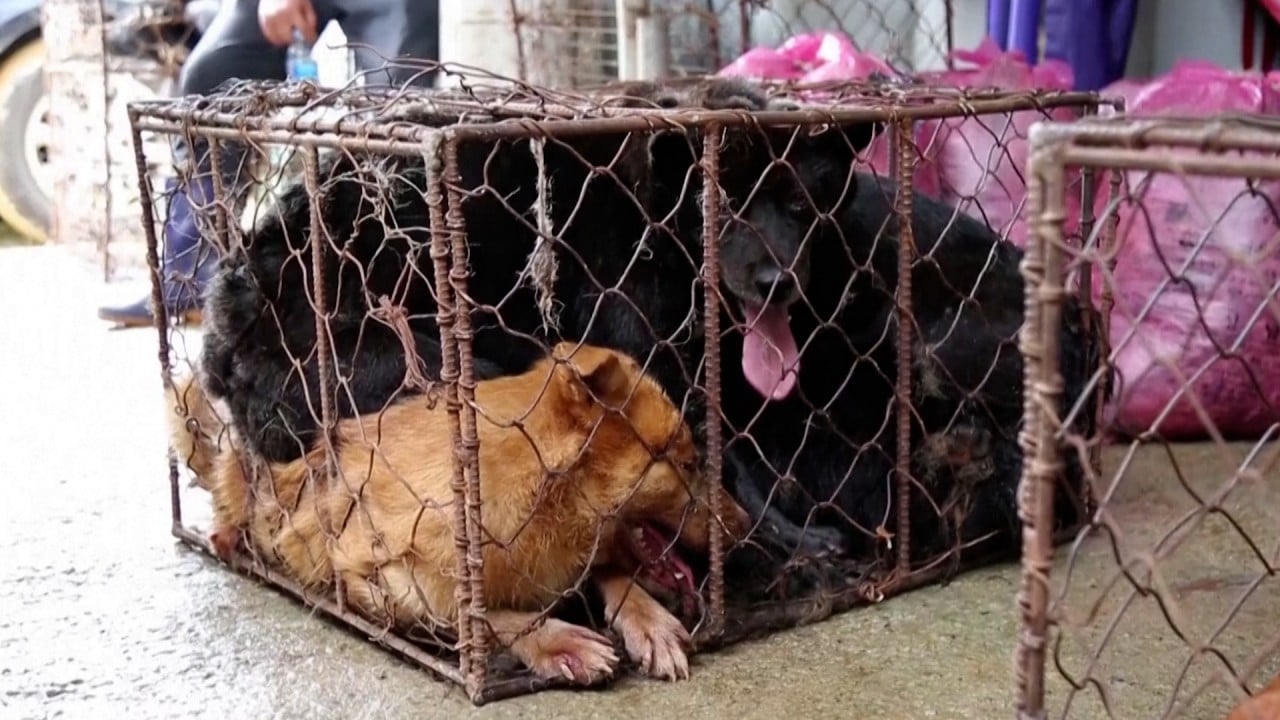
As South Korea plans dog meat ban, farmers threaten to flood Seoul with 2 million canines
- Lawmakers from across the aisle have proposed to outlaw the consumption and sale of dog meat, with measures such as a five-year jail term or fines of up to US$38,000
- Animal rights groups welcome the prospect of a ban, hailing it as a victory in their ongoing efforts to end the perceived cruelty associated with the dog meat trade
South Korean dog meat farmers have threatened to release 2 million dogs near the presidential office as the country inches towards legislation that bans the trade.
Eating dog meat has historical roots on the Korean peninsula, often viewed as a method to combat the summer heat, although public opinion of the tradition has shifted in recent decades, with more households keeping dogs as pets and younger people shunning the dish on grounds of animal cruelty.

A bill from the ruling conservative People Power Party proposes a maximum sentence of five years’ jail or 50 million won (US$38,000) in fines for those involved in the dog meat trade, while the liberal Democratic Party of Korea’s bill advocates for three-year jail terms and fines of up to 30 million won.
If enacted, the measures would take effect in 2027, with the government providing financial aid to help businesses transition away from the trade.
Joo Young-bong, head of the Korea Dog Meat Farmers’ Association, earlier this week claimed his group would release 2 million dogs near key governmental locations in Seoul and the homes of lawmakers.
“We’re so outraged that we’re talking about releasing 2 million dogs we’re raising near the presidential office, the agriculture minister’s home and offices of lawmakers who have introduced the bills,” he said.
“Eating dog meat cannot be a crime like trafficking drugs or prostitution,” Joo told a radio news talk show. “Have you ever heard of anyone whose dog meat consumption caused harm to others?”
Joo’s association had previously asked the government to classify dogs as livestock, to no avail.
Animal rights groups, including Humane Society International, welcomed the prospect of a ban, hailing it as a victory in their ongoing efforts to end South Korea’s the dog meat trade.
“We’ve lobbied policymakers to make bold strides towards tackling this industry that sees upwards of 1 million dogs a year reared in squalid and deprived conditions to be killed for human consumption,” it said in a statement. “We will continue to focus our energy on ensuring that the legislation remains as strong as possible to deliver a robust law.”
Animal rights activist Cho Hee-kyung, head of the Korean Animal Welfare Association, said a national consensus was forming in favour of banning the trade and consumption of dog meat. She highlighted the diminishing number of dog meat consumers and the negative impact on the country’s international image.

Government statistics show there are 1,150 dog farms, 34 slaughterhouses, 219 distribution companies and around 1,600 restaurants serving dog meat across South Korea.
However, Joo contested these figures during the same radio talk show, saying only one-third of farms had responded to a government poll because it was obvious the survey’s purpose was to wipe out the businesses following insufficient compensation.
Despite the substantial size of the dog meat industry, there are currently no clear laws regulating the trade, leading to underground practices marked by cruelty and unsanitary conditions.
The dogs bred for meat, known as nureongi, are Tosa-based mongrels and end up in dishes like boshintang, a stew. Activists argue that rescued dogs from these farms may include stolen pets, adding complexity to the ethical concerns surrounding the dog meat trade.
South Korea lawmakers irked over Yoon’s bid to name anti-dog meat law after wife
“Avoiding dog meat consumption is ultimately an expression of respect for man’s best friend and it also means respect for life,” she told the Seoul Sinmun newspaper last year.
Kim has consistently raised the issue at various forums, including in discussions with French Foreign Minister Catherine Colonna and renowned primatologist Jane Goodall.
A Gallup Korea poll from last year indicated that 64 per cent of respondents opposed dog meat consumption, with only 8 per cent acknowledging having consumed it in the past year – a significant drop from 27 per cent in 2015.


